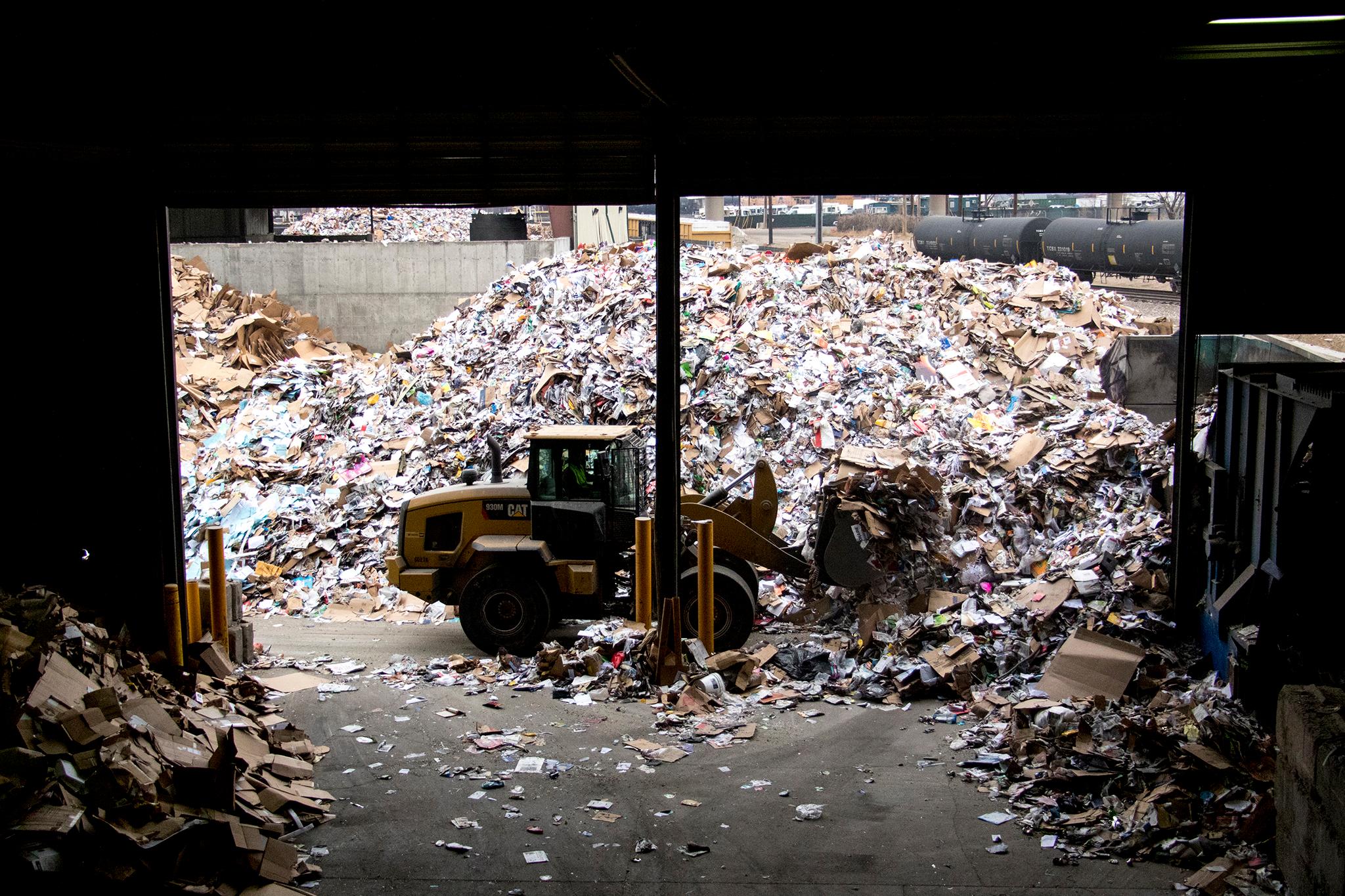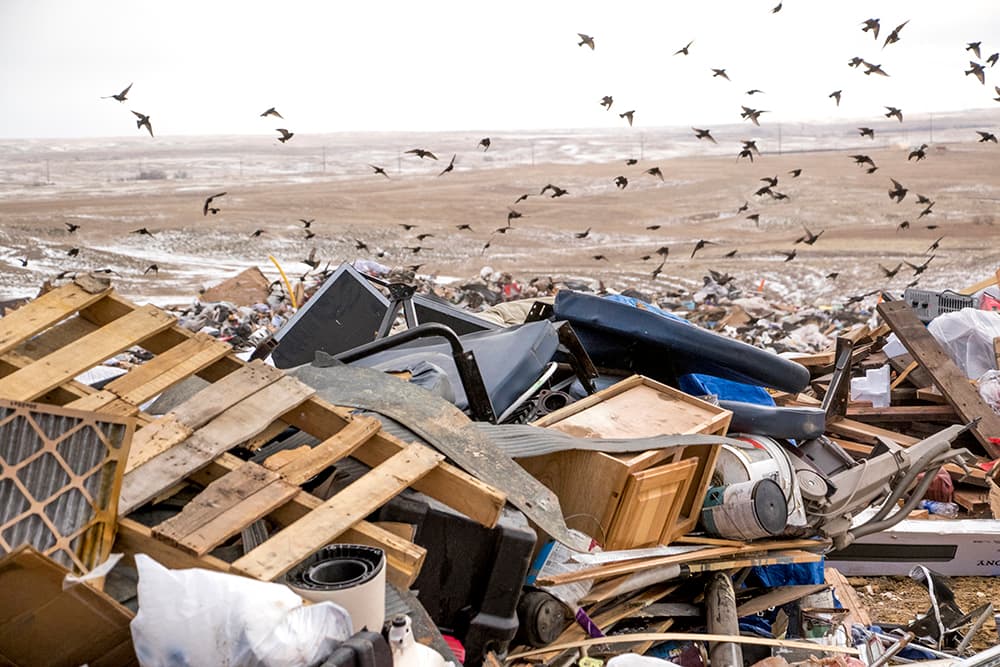Denver brags about being a climate change leader. But when it comes to reducing greenhouse gas emissions by keeping waste out of landfills, the stats don't back this up -- even as things are slowly improving.
Over the past decade, the city has seen some progress since passing the 2010 Solid Waste Master Plan.
Denver reduced landfill waste by 300 pounds per household; replaced dumpsters with trash, recycling and composting carts; automatically sent recycling carts to 96% of the city's households; increased composting from 1,600 homes in 2010 to over 30,000 homes in 2022; and more.
Despite these improvements, Denver lags behind the nation as a whole when it comes to diverting waste from landfills.
"Through focused efforts over the last ten years, Denver has been able to increase its diversion rate from 13 percent in 2010 to 26 percent in 2020," Grace Rink, Denver's Chief Climate Officer, said in a statement. "While we have made progress, this rate has remained stagnant and falls well below the national average of 34 percent."
Now the Office of Climate Action, Sustainability and Resiliency, the Department of Transportation and Infrastructure, and the Department of Public Health and Environment are giving the 2010 solid-waste plan a refresh called the Sustainable Resource Management Plan.
The new plan aims to double recycling and composting over the next five years and increase them to 70% by 2032.
"Even accounting for Denver's future growth, achieving a 50% diversion rate will reduce greenhouse gas emissions by nearly 3,000,000 MtCO2e, the equivalent of taking over 600,000 cars off the road," the plan states.
The plan will encourage the city to implement policies that will reduce landfill waste and increase recycling and composting while advocating for greener statewide laws. It will revamp the city's waste management infrastructure and strengthen regional collaborations across the metro area. And it will ramp up community engagement strategies with individuals and businesses, ensuring they know how to implement recycling and composting programs

So what's the plan?
The City hopes to launch a Universal Waste Reduction Ordinance focused on the commercial and construction sectors, which the report states are responsible for more than 80% of the city's waste and only diverting 36%. That ordinance would include recycling and composting mandates for multifamily buildings and for construction and demolition crews.
The plan also proposes an update to the zoning code requiring all new buildings to include space for composting and recycling.
The city would also explore a potential cardboard-disposal ban targeting consumers who send their cardboard to the landfill.
"Cardboard is widely recognized as a high-quality recyclable that is acceptable in all curbside and drop-off center collections, and in commercial collections, and is a commodity that consistently has positive market value," according to the plan. "Despite wide-spread access to recycling, it is estimated that 47% of cardboard is sent to landfill from the residential waste stream and 57% from the commercial waste stream."

If all goes to plan, the city would implement a volume-based fee for trash collection and increase the recycling and composting schedule to once a week.
"A volume-based pricing program provides trash, recycling, and composting to all customers, and charges a fee based on the size of the refuse cart; the smaller the cart, the lower the fee," the plan notes. "This type of program is a key foundation to equalizing the waste systems between DOTI's customers and the private sector and will result in consistent waste diversion."
This fee system is already under consideration by City Council. If passed, Denverites would start being charged in 2023.
This move to charge for trash collection is part of a larger series of reforms Council has recently considered that are designed to reduce waste, including the Bring Your Own Bag ordinance that created a 10-cent fee for using disposable bags at checkout and the #SkiptheStuff ordinance that reduced single-use items in takeout and delivery.
"Reaching a higher diversion rate will require new strategies," noted Rink. "And this plan will get us there."














